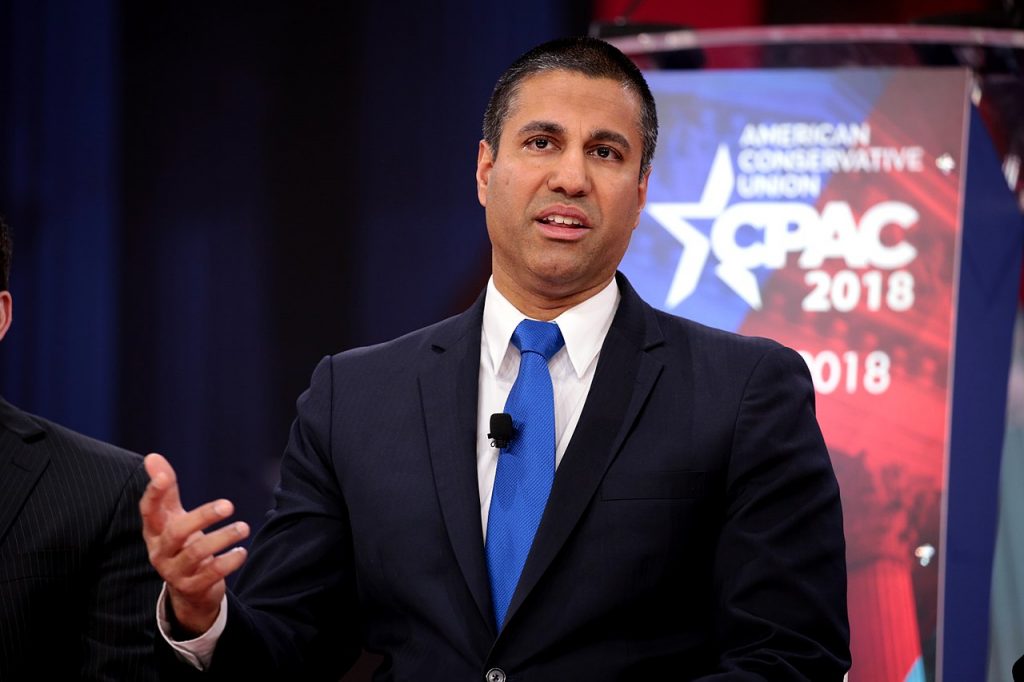
When the Federal Communications Commission repealed Obama-era net neutrality rules in December 2017, a crucial element of their action was a seemingly technical regulatory decision related to the classification of broadband internet service providers. Overturning a previous classification from the FCC when it was controlled by a Democratic majority, the FCC – with a Republican majority – ruled that broadband internet did not qualify as telecommunications – instead, it was an “information service.”
That was a necessary step in the Trump FCC’s crusade to repeal net neutrality. Now, that classification has become a crucial source of contention in legal challenges to that repeal.
Earlier this year, the US Court of Appeals for the District of Columbia Circuit heard oral arguments in a lawsuit filed by consumer groups and state attorneys general seeking to overturn the repeal of net neutrality regulations. Observers at the hearing believed the three-judge panel expressed skepticism toward the FCC’s position.
Arguing Over Title II
The government and the consumer groups suing it clashed on a few fronts in the late January hearings, but much of the debate revolved around the controversial Title II classification changes.
The Democratic-controlled FCC classified broadband internet as a telecommunications service in 2015, which was a necessary first step to instituting net neutrality rules. As noted above, the Republican-controlled FCC – led by Chairman Ajit Pai – reversed that classification in 2017 after Donald Trump took control of the White House.
When consumer groups filed suit over the FCC’s net neutrality repeal, they argued that the commission’s classification of broadband internet service providers as “information service” was not proper. Groups are allowed to challenge such FCC classifications, but courts provide deference to agency determinations and plaintiffs face the burden of proof when asking courts to overturn them.
Net neutrality advocates believe they have a strong case, and the DC Circuit judges hearing their suit reportedly strongly questioned the government’s attorney about the FCC’s Title II re-classification. The arguments themselves grew quite technical – the government argued that because broadband providers offered Domain Name System (DNS) services and caching, they were giving consumers the ability to perform all the listed functions of information services.
Judge Patricia Millett asked the government why the FCC continued classifying telephone services as telecommunications, as telephone service is used to acquire and share information, a key component of the commission’s justification for re-classifying broadband as an information service.
The government responded by saying that broadband’s caching and DNS service were “functionally integrated” with the core broadband service in a way that didn’t apply to traditional telephone communications.
A Place of Greater Safety?
While the plaintiffs in the suit contested the FCC’s Title II re-classification, they did not limit their case to the one issue. Consumer groups also said that the commission neglected its statutory duty to consider the public safety impacts of their ruling.
Plaintiffs cited a famous controversy when Verizon “throttled” – slowed down – the unlimited data services paid for by the Santa Clara Fire Department during California’s wildfires last year. The department said the throttling inhibited its response to the wildfires and it was forced to pay for a new plan that did not allow throttling. In a statement, Verizon wrote that it has a policy of waiving throttling restrictions for emergency responders and claimed the Santa Clara throttling was a mistake.
The department filed a statement that was entered into the record in the current suit.
Plaintiffs have argued that there’s no acceptable post-hoc remedy for public safety concerns and that they must be addressed through net neutrality regulations. The government, for its part, argued that the burden of proof is on public agencies to show they are harmed by the new regulations, but admitted the regulations do not prevent ISPs from instituting throttling policies if those policies are fully disclosed.
Impact on Investment
One of the FCC’s core arguments against net neutrality is that the regulations had a negative impact on providers’ willingness to invest in broadband development around the country. This, the commission argued, prevents millions of Americans from accessing the internet.
These claims have been contested, however, and not just by net neutrality advocates. When net neutrality regulations were in effect, internet service providers repeatedly told their investors that those regulations were not slowing down their investments and indicated they were continuing to invest heavily in improving their broadband service. Under the law, information provided to investors by publicly traded companies must be accurate.
The government argued that those statements were “ambiguous” and cited statements from a number of ISPs that they were stopping work on some projects on account of net neutrality regulations.
Democrats in the House of Representatives are preparing to hold hearings on their own bill to overturn the FCC’s repeal and restoring net neutrality regulations.



Leave a Comment